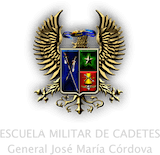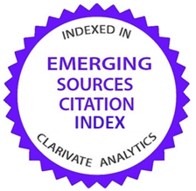Perdiendo la guerra mientras se derrota al enemigo
La vitalidad del “Strategy Bridge”
DOI:
https://doi.org/10.21830/19006586.992Palabras clave:
conflicto, insurgencia, PKK, Strategy Bridge, terrorismo, TurquíaResumen
Este artículo analiza longitudinalmente la interacción estratégica entre Turquía y el Partido de los Trabajadores del Kurdistán (PKK) en sus cuatro décadas de conflicto. Utilizando la teoría estratégica contemporánea como marco analítico, analiza cómo se alinean las estrategias –generales y militares– y los objetivos políticos de las partes. Constata que ambas partes han tenido dificultades estableciendo (alineando la política, la estrategia y los recursos) y, en varios casos, sosteniendo un Strategy Bridge (estrategia) funcional. Ambos actores han sido plagados por aproximaciones estáticas que solo funcionan en un contexto específico y la ausencia de un strategy bridge estratégico, perpetuando así el conflicto en curso. Los autores concluyen que el conflicto seguramente continuará a menos que una de las partes logre crear y sostener una estrategia funcional durante un periodo prolongado.
Descargas
Referencias bibliográficas
Bulut, Ercan (2014, June): A Checkmate, not a Stalemate: Turkey Versus the PKK. (Master’s Thesis, Naval Postgraduate School, Monterey, United States). URL: http://hdl.handle.net/10945/42589
Corbett, J. S. (1911). Appendix: The “Green Pamphlet,” in Some Principles of Maritime Strategy [London: n.p., 1911]. Project Gutenberg. http://www.gutenberg.org/ebooks/15076
Echevarria II, A. J. (2017). Military Strategy: A Very Short Introduction. Oxford University Press.
Gray, C. S. (2009). After Iraq: the search for a sustainable national security strategy [Monograph, pp. 54-46]. US Army War College, Strategic Studies Institute, Carlisle Barracks, PA. https://apps.dtic.mil/dtic/tr/fulltext/u2/a492479.pdf;
Gray, C. S. (2010). The strategy bridge: theory for practice (1st ed.). Oxford University Press.
Gray, C. S. (2018). Theory of strategy. Oxford University Press.
Gürcan, M. (2015a). Arming civilians as a counterterror strategy: The case of the village guard system in Turkey. Dynamics of Asymmetric Conflict, 8(1), 1-22. http://dx.doi.org/10.1080/17467586.2014.948026
Gürcan, M. (2015b) “Çatışmaların stratejik düğüm noktası: Cizre” [The strategic core of the clashes], T24. http://t24.com.tr/yazarlar/metin-gurcan/catismalarin-stratejik-dugum-noktasi-cizre,13489.
Gürcan, M. (2016). The Kurdistan Freedom Falcons: A Profile of the Arm’s-Length Proxy of the Kurdistan Workers’ Party. CTC Sentinel, 27. https://ctc.westpoint.edu/the-kurdistan-freedom-falcons-a-profile-of-the-arms-length-proxy-of-the-kurdistan-workers-party/
Gürcan, M., & Ünal, M. C. (2018). Reaching a balance of resolve: The enduring conflict between Turkey and the PKK. In E. Lieberman (Ed.), Deterring Terrorism (1st ed., pp. 181-218). Routledge.
International Crisis Group. (2016). Turkey’s PKK Conflict: A Visual Explainer. Crisis group. http://www.crisisgroup.be/interactives/turkey/.
Jablonsky, D. (1987). Strategy and the Operational Level of War: Part II. Army War College, CARLISLE BARRACKS PA.
Kennedy, P. M. (1991). Grand Strategies in War and Peace: Toward a Broader Definition. In P. Kennedy (Ed.), Grand Strategies in War and Peace (p. 5). Yale University Press.
Kocher, M. A. (2002). The Decline of the PKK and the Viability of a One-State Solution in Turkey. International Journal on Multicultural Societies, Vol. 4, No. 1. https://unesdoc.unesco.org/search/a3d8b26a-304d-4105-af74-8308ebcb3c33
Kydd, A. H., & Walter, B. F. (2006). The strategies of terrorism. International security, 31(1), 49-80. http://dx.doi.org/10.1162/isec.2006.31.1.49
Mahnken, T.G & Maiolo, J.A (Eds.) (2014). Strategic Studies: A Reader. (Second ed.), 17-32. Oxon: Routledge.
Marks, T. A. (2005). Counterinsurgency and operational art. Low Intensity Conflict & Law Enforcement, 13(3), 168-211. https://doi.org/10.1080/09662840600560527
Mead, W. R. (2005). Power, terror, peace, and war: America's grand strategy in a world at risk. Vintage Books.
Milliyet. (2016, March 28). 265 günlük bilanço: 5 bin 359 terörist öldürüldü (Terror Results for 265 days). Milliyet. http://www.milliyet.com.tr/tsk-bilancoyu-acikladi-4-bin-432-gundem-2217174/
Miron, M. (2019a). On irregular wars, insurgencies and how to counter them: enemy and population-centric approaches in comparative perspective. Revista Científica General José María Córdova, 17(27), 456-480. https://doi.org/10.21830/19006586.497
Miron, M. (2019b). First-Party COIN: Approaches of Choice in Peru, Turkey and Sri Lanka in Strategic Perspective [Doctoral dissertation, Ph. D. Dissertation]. Canberra: The University of New South Wales at the Australian Defence Force Academy. https://unsworks.unsw.edu.au/entities/publication/39569af4-6614-4e01-aec1-ce64e442ab0a
Öcalan, A. (1978). Kürdistan Devriminin Yolu (Manifesto). Köln: Weşanen Serxwebun.
Plakoudas, S. (2018). Insurgency and counter-insurgency in Turkey: The new PKK. Springer.
Rapoport, D. C. (2004). The four waves of modern terrorism. In A. K. Cronin & J. Ludes (Eds.), Attacking Terrorism: Elements of a Grand Strategy (pp. 54, 3-11). Georgetown University Press.
Romano, D. (2012). Turkish and Iranian Efforts to Deter Kurdish Insurgent Attacks. In Wegner, A. and Wilner, A. (Eds.), Deterring Terrorism: Theory and Practice, 228-250. Stanford University Press.
Serxwebun (1994, April) accessed on December 24th 2019 available at https://archive.org/details/serxwebun/1994/Serxwebun%20nr.%20148%201994/
Serxwebun (2013, August) accessed on December 24th 2019 available at
https://archive.org/details/serxwebun/2013/Serxwebun%20nr.%20380%202013/page/16/mode/2up
Ünal, M. C. (2012a). Counterterrorism in Turkey: Policy choices and policy effects toward the Kurdistan workers’ party (PKK). Routledge.
Ünal, M. C. (2012b). The Kurdistan Workers' Party (PKK) and popular support: counterterrorism towards an insurgency nature. Small Wars & Insurgencies, 23(3), 432-455. https://doi.org/10.1080/09592318.2012.661610
Ünal, M. C. (2014). Strategist or pragmatist: A challenging look at Ocalan's retrospective classification and definition of PKK's strategic periods between 1973 and 2012. Terrorism and Political Violence, 26(3), 419-448. https://doi.org/10.1080/09546553.2012.728153
Ünal, M. C. (2016a). Is it ripe yet? Resolving Turkey's 30 years of conflict with the PKK. Turkish Studies, 17(1), 91-125. https://doi.org/10.1080/14683849.2015.1124020
Ünal, M. C. (2016b). Opening a door for return to home: impact and effectiveness of Turkish repentance laws. Studies in Conflict & Terrorism, 39(2), 128-164. https://doi.org/10.1080/1057610X.2015.1093889
Ünal, M. C. (2016c). Terrorism versus insurgency: a conceptual analysis. Crime, Law and Social Change, 66(1), 21-57. https://doi.org/10.1007/s10611-015-9601-7
Ünal, M. C. (2016d). Counterinsurgency and military strategy: An analysis of the Turkish Army's COIN strategies/doctrines. Military Operations Research, 21(1), 55-88. http://www.jstor.org/stable/24838662
Ünal, M. C., & Cafnik Uludağ, P. (2019). Insisting on victory: Victory versus success in limited and asymmetric wars. Revista Científica General José María Córdova, 17(28), 891-922. http://dx.doi.org/10.21830.19006586.522
Ünal, M. C., & Cafnik Uludağ, P. (2020). Eradicating Terrorism in Asymmetric Conflict: The role and essence of military deterrence. Terrorism and Political Violence, 34(4), 772-816. https://doi.org/10.1080/09546553.2020.1742113
Von Clausewitz, C. (1976). On War. M. Howard & P. Paret, Eds. Princeton UP.
Yarger, H. R. Dr. (2006). Strategic Theory for the 21st Century: The Little Book on Big Strategy. US Army War College Press. https://press.armywarcollege.edu/monographs/723.
Descargas
Publicado
Cómo citar
Número
Sección
Licencia
Derechos de autor 2022 Revista Científica General José María Córdova

Esta obra está bajo una licencia internacional Creative Commons Atribución-NoComercial-SinDerivadas 4.0.
| Estadísticas de artículo | |
|---|---|
| Vistas de resúmenes | |
| Vistas de PDF | |
| Descargas de PDF | |
| Vistas de HTML | |
| Otras vistas | |

























